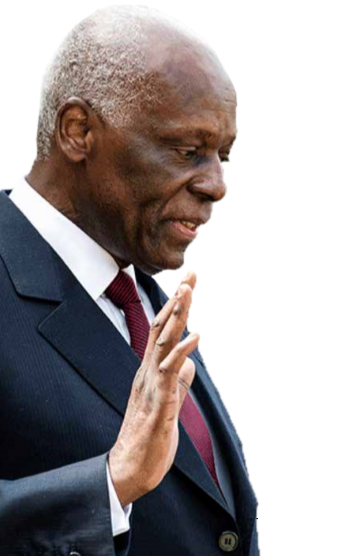
How the reign of Dos Santos shaped Angola
Angolans endured a bloody civil war and extreme poverty as for nearly 40 years power rested solely in the hands of autocratic President Jose Eduardo dos Santos. State radio’s announcement that he will stand down next year appears to be the beginning of the end of one of Africa’s longest reigns, and could open a new chapter for a country largely closed off to the outside world, writes Ben Sheppard.
When Dos Santos, now 74, became president in 1979, war was already raging between the MPLA government and UNITA rebels, four years after independence from Portugal. Today, Angola has been at peace only since 2002, but is still deeply scarred by a conflict that became a vicious proxy battleground in the Cold War rivalry of the United States and the Soviet Union.
After fighting eventually ceased, a frenetic oil boom saw skyscrapers sprout up in the centre of the capital Luanda and paid for nationwide infrastructure improvements. But it left millions of ordinary Angolans living in dire slums, and the collapse in oil prices has triggered a full-scale national economic crisis since 2013.
“In some ways he is the father figure of the nation, widely seen — rightly or wrongly — as the man who ended the war,” Soren Kirk Jensen, an Angola specialist at the London-based Chatham House think tank, told AFP.
“It wasn’t a negotiated peace, it was brutal, but it is hard to see there was any other way.
“There is growing discontent among the educated middle class, who see him as an autocrat, and as a failure due to the economy.
“But in large parts of Angola and especially rural areas, a generation that suffered during the war still views him in a positive light.
“That is his powerful legacy — very long and very mixed.”
‘Ruthless oppression’
Leading Angolan writer and opposition activist Rafael Marques is scathing in his criticism of Dos Santos and dismisses any suggestion of the president being held in affection.
Marques himself felt the sharp edge of the regime’s intolerance, standing trial twice on defamation charges and given suspended sentences.
“Dos Santos didn’t lead his country out of war — he was a warmonger who ruined his country and ransacked it for his family’s profit,” Marques said, speaking from Luanda.
“He has now run out of money to maintain his patronage system, so he became far more vulnerable to pressure by his party (to stand down).
“After 37 years of power, and after all the oil money, all you see in Angola is a few flash buildings, the misery of the people, corruption, repression and no freedom of expression.
“The most positive thing to happen would be to bring him to justice, but his departure won’t mean the end of the regime.”
Life after Dos Santos is hard to imagine for many Angolans if — as announced — he does not stand in next year’s election.
Though seldom seen in public, he has been a looming presence through the decades, exercising almost total authority over politics, the courts, the security forces, media and business.
His picture often appears on the front page of newspapers, as well as on countless billboards and framed photographs in every office.
“Looking back, he has been an extraordinary, substantial figure who was involved in ruthless oppression of opponents, including within his own party,” Martin Plaut, African analyst and fellow of the Institute of Commonwealth Studies, told AFP.
“In some ways, he did bring stability to his country and he is viewed as an ‘eminence grise’ by some other African leaders. But he ruled with an iron rod.”
****
editor@indpendent.co.ug
 The Independent Uganda: You get the Truth we Pay the Price
The Independent Uganda: You get the Truth we Pay the Price



